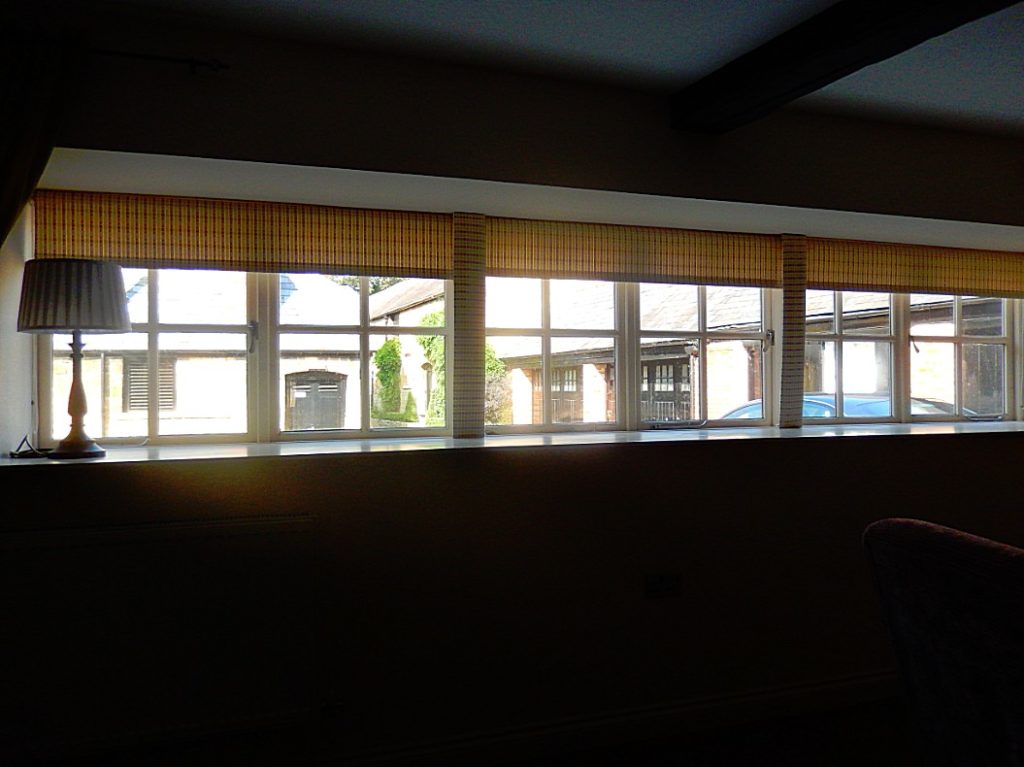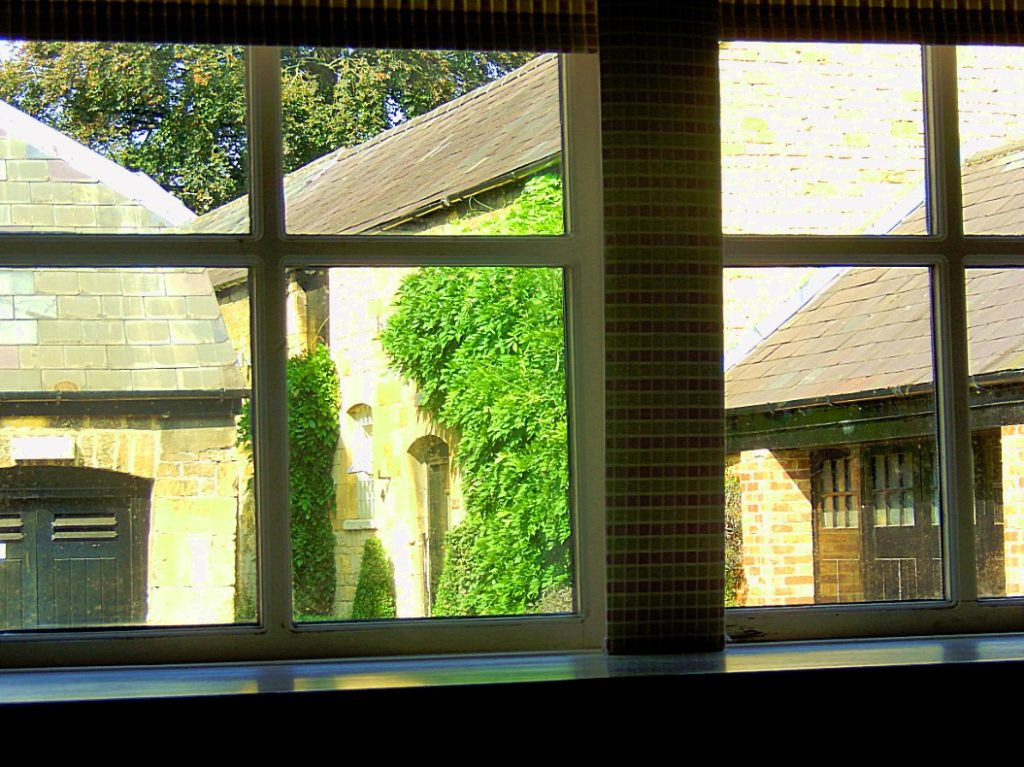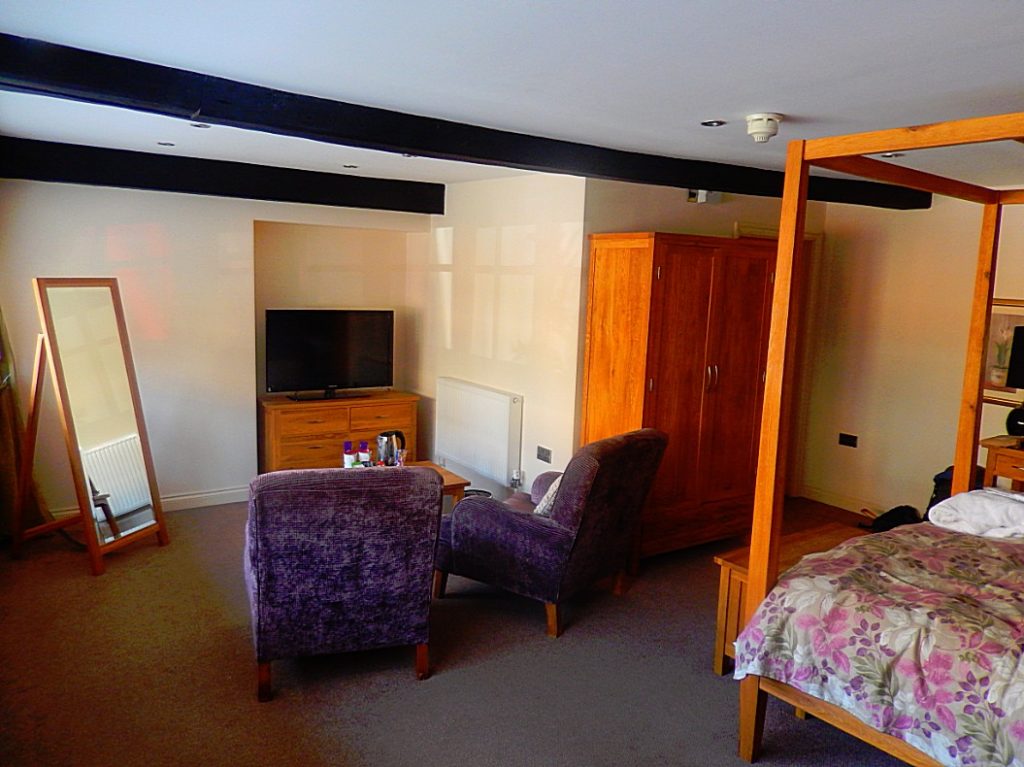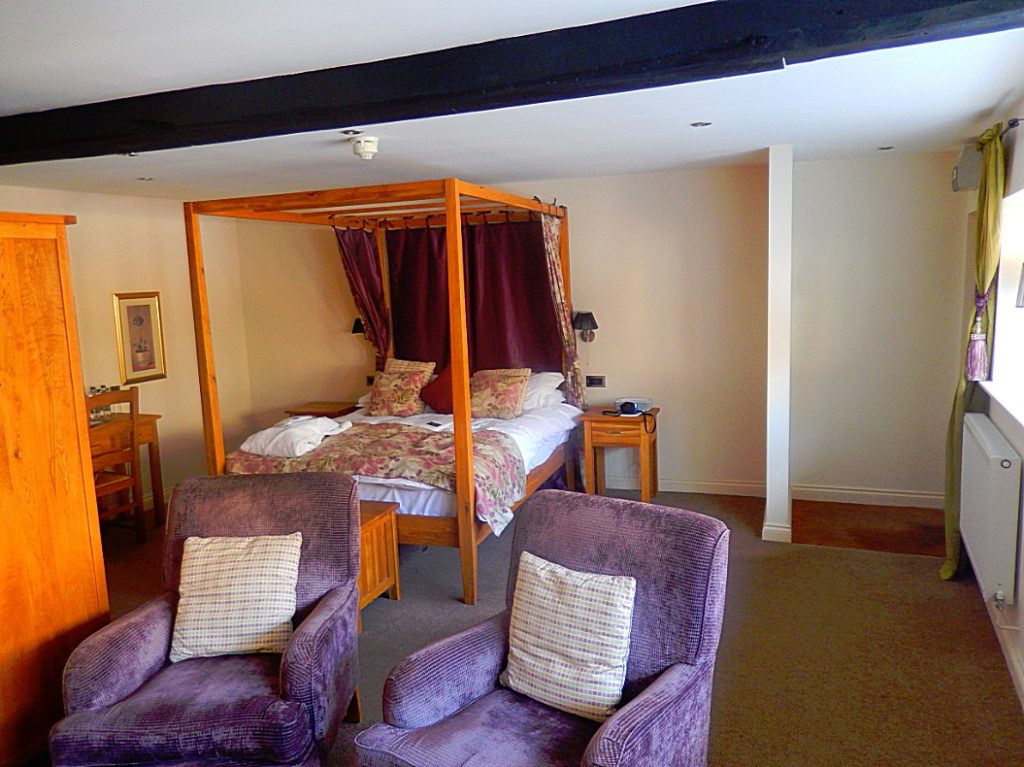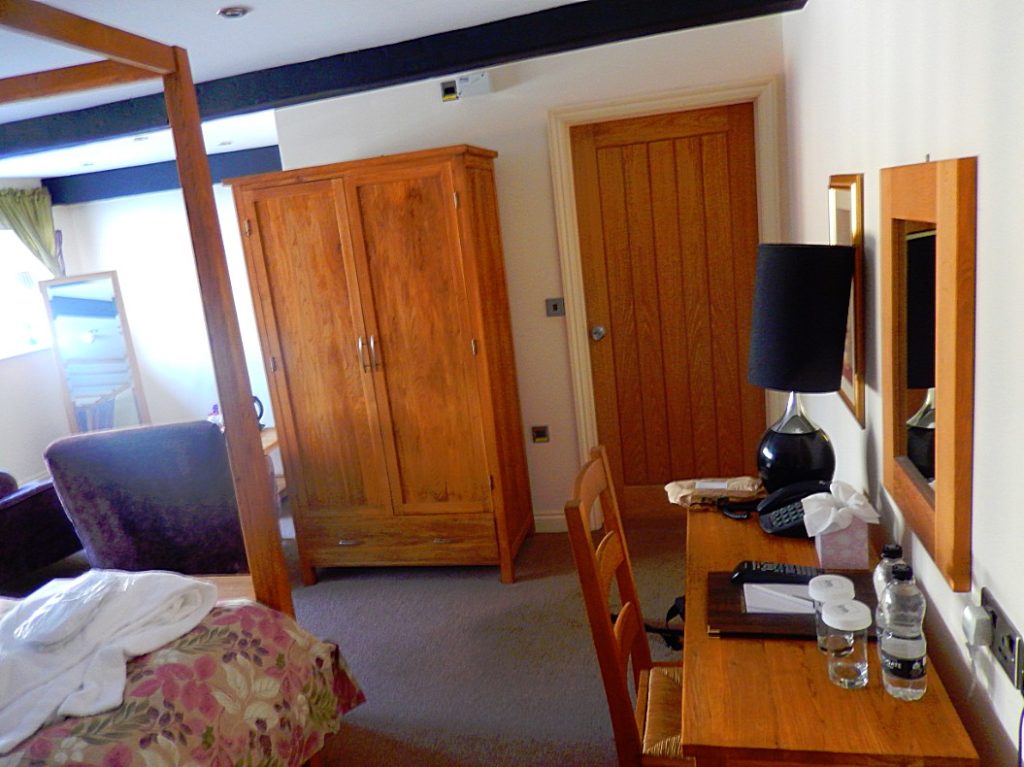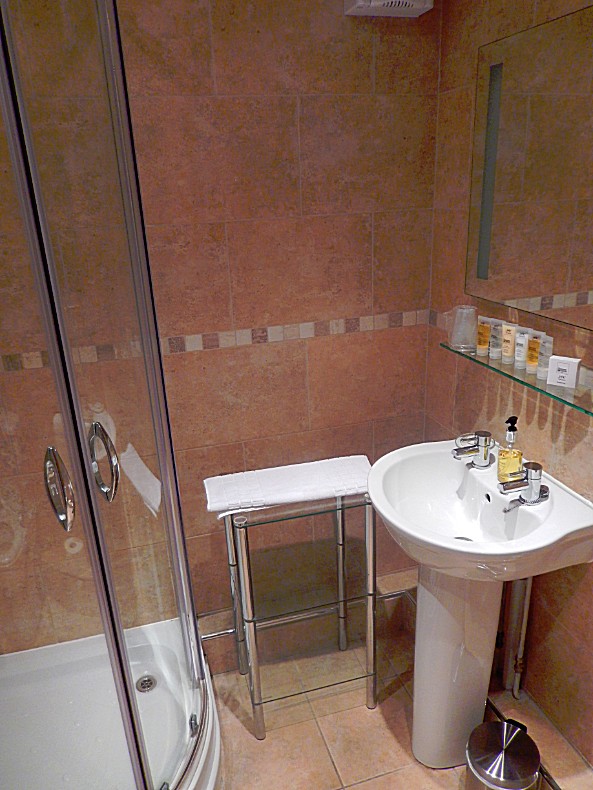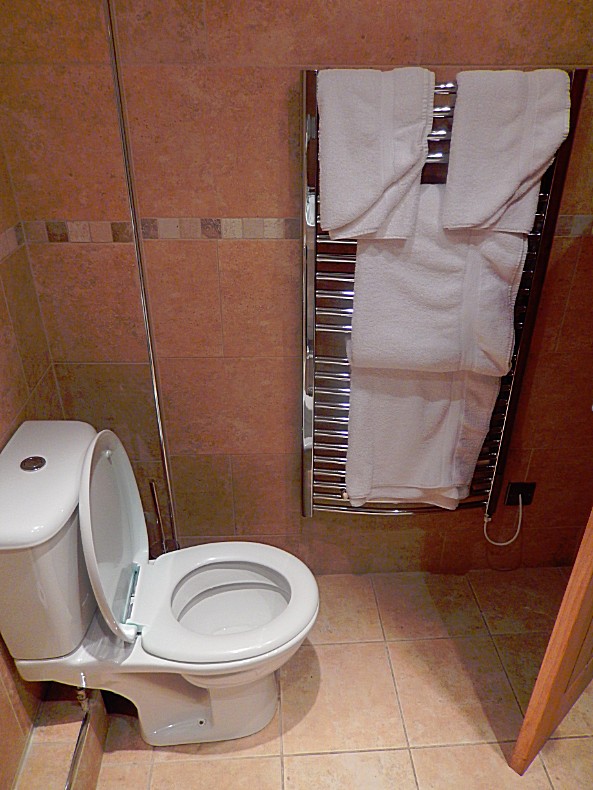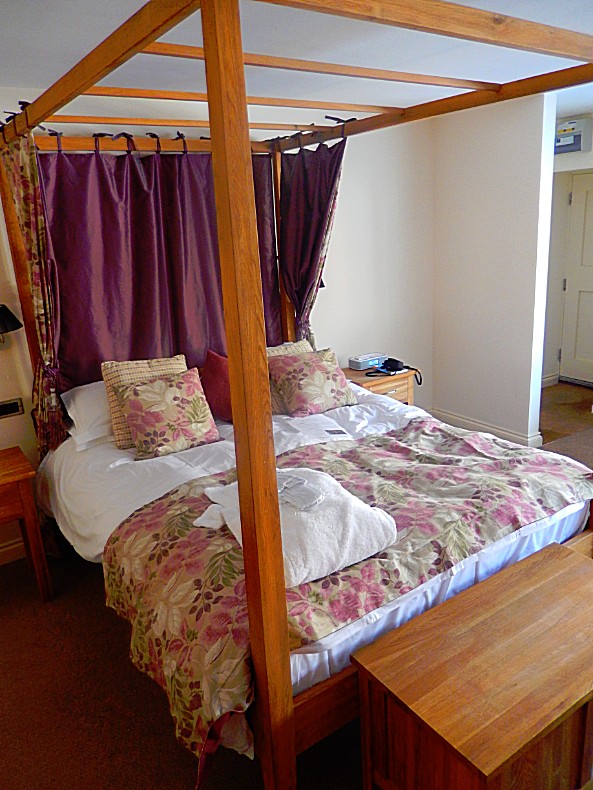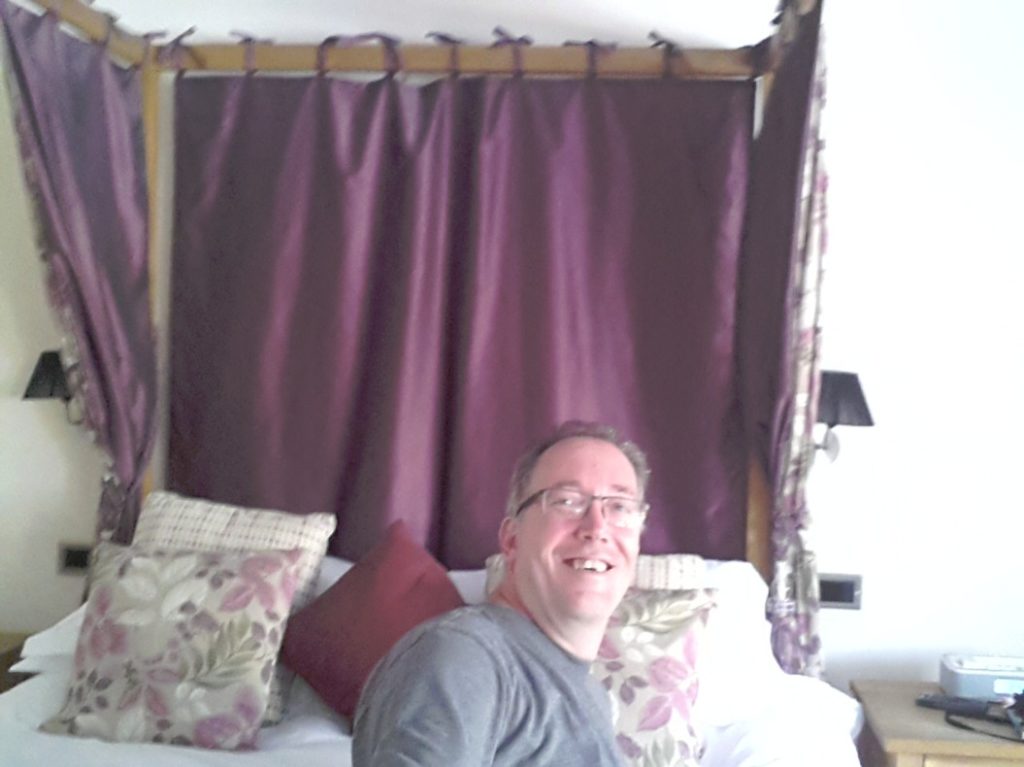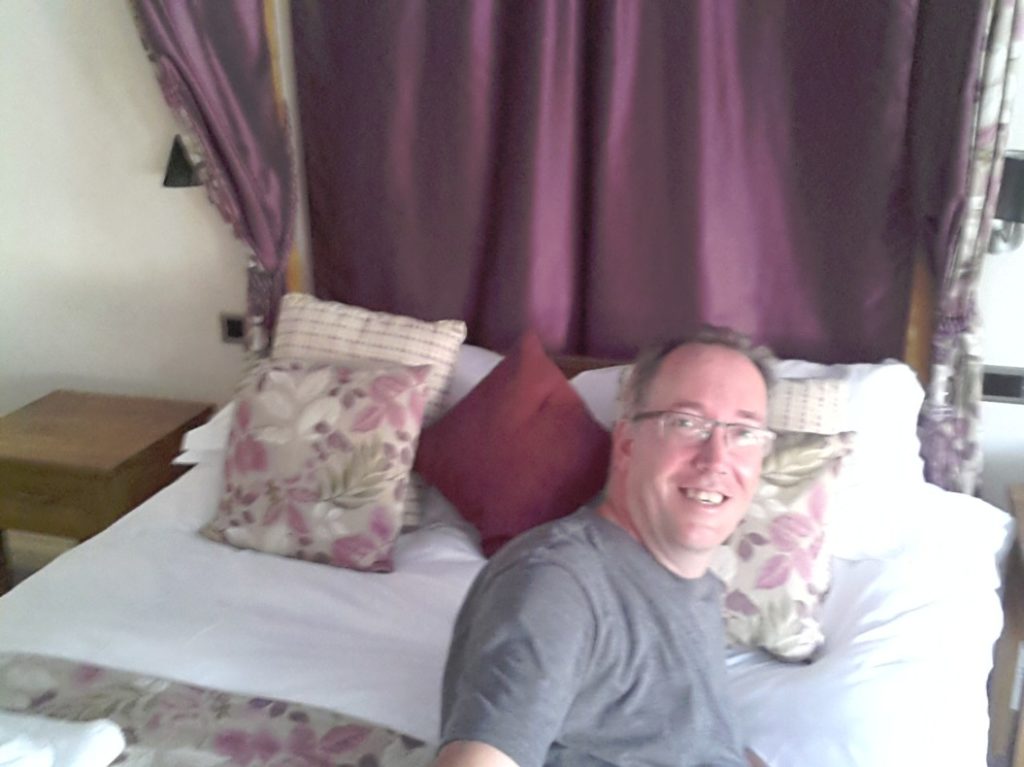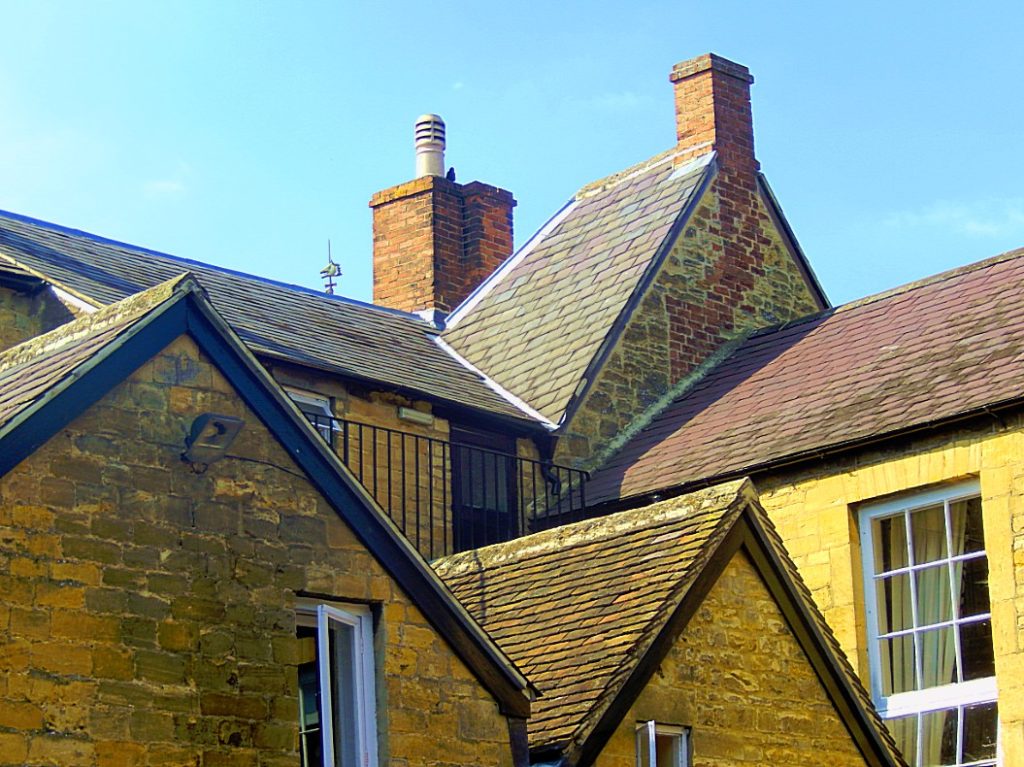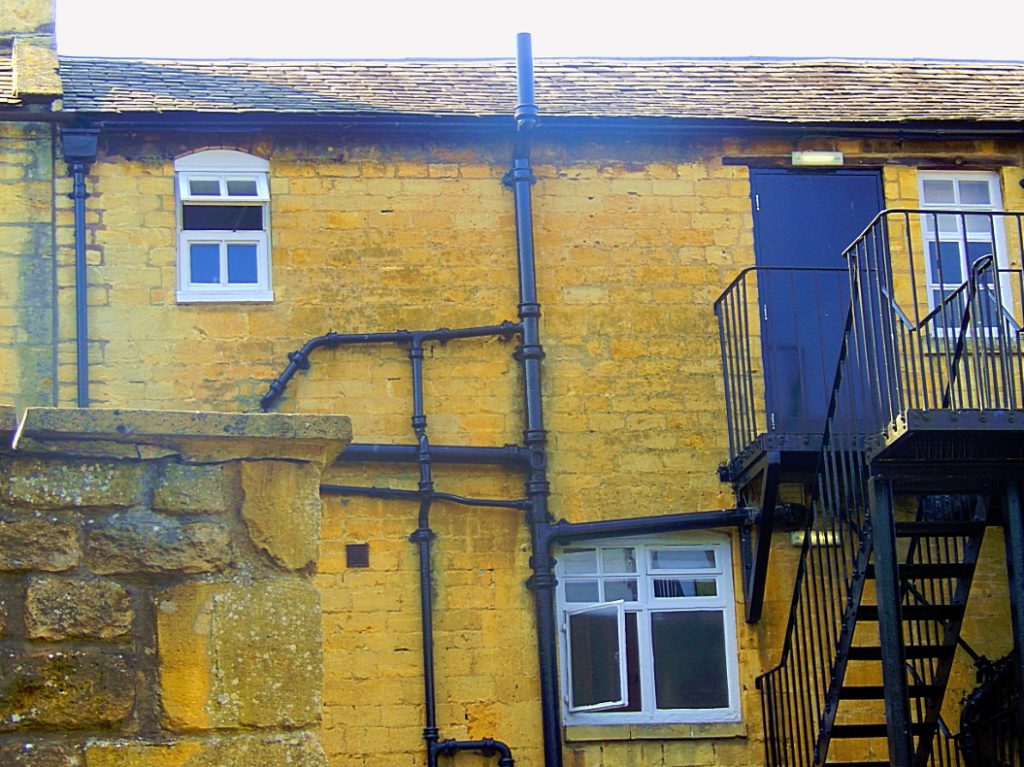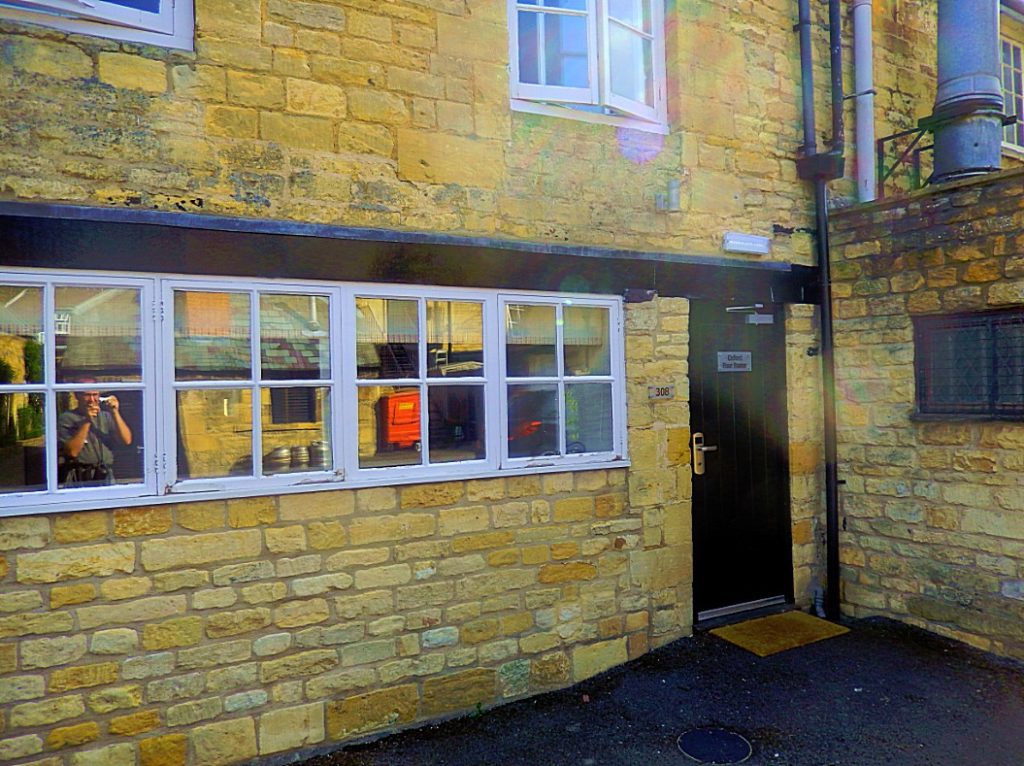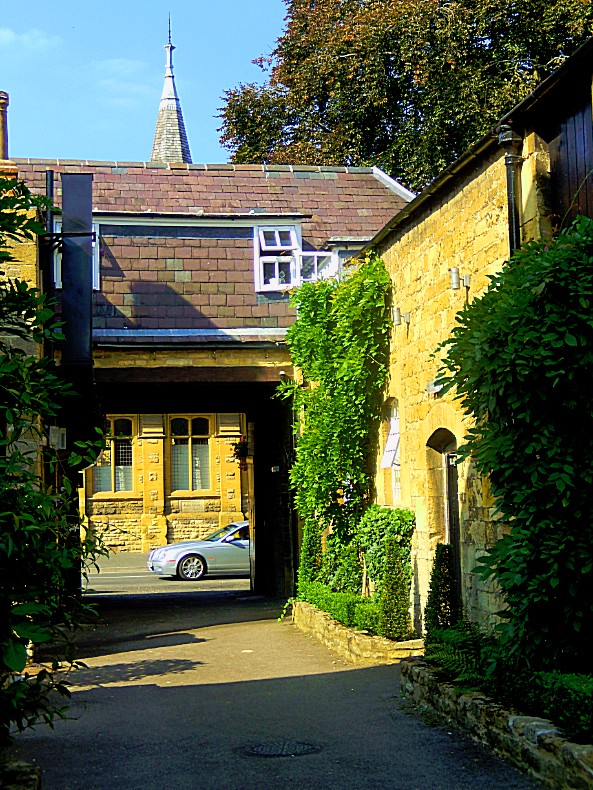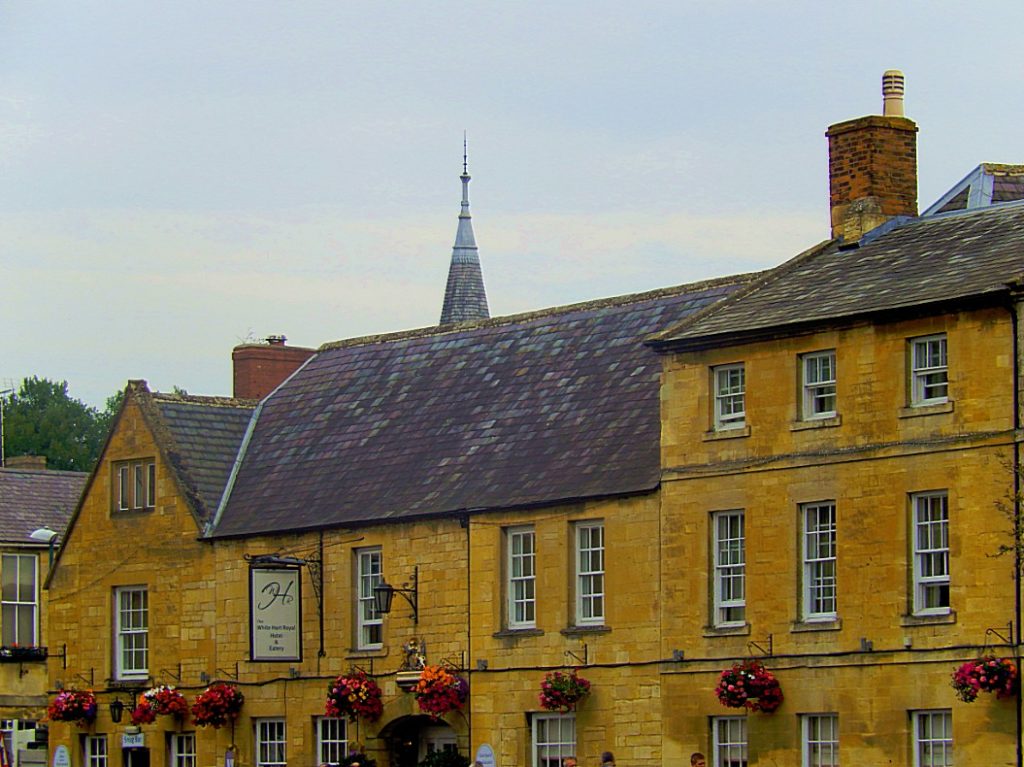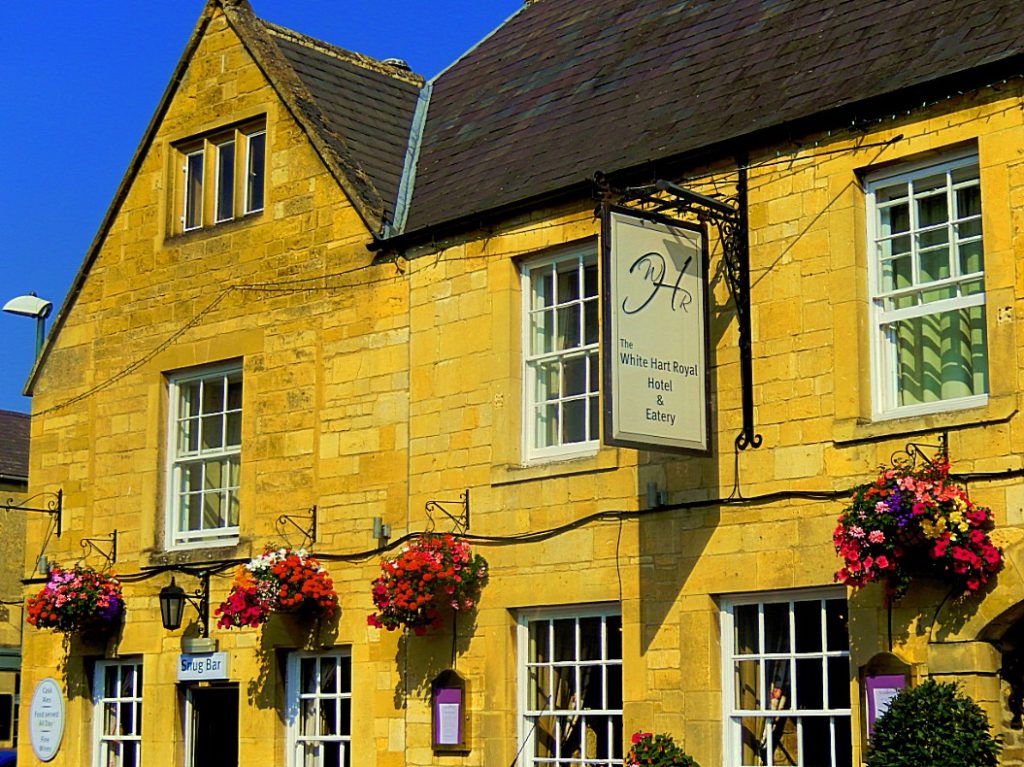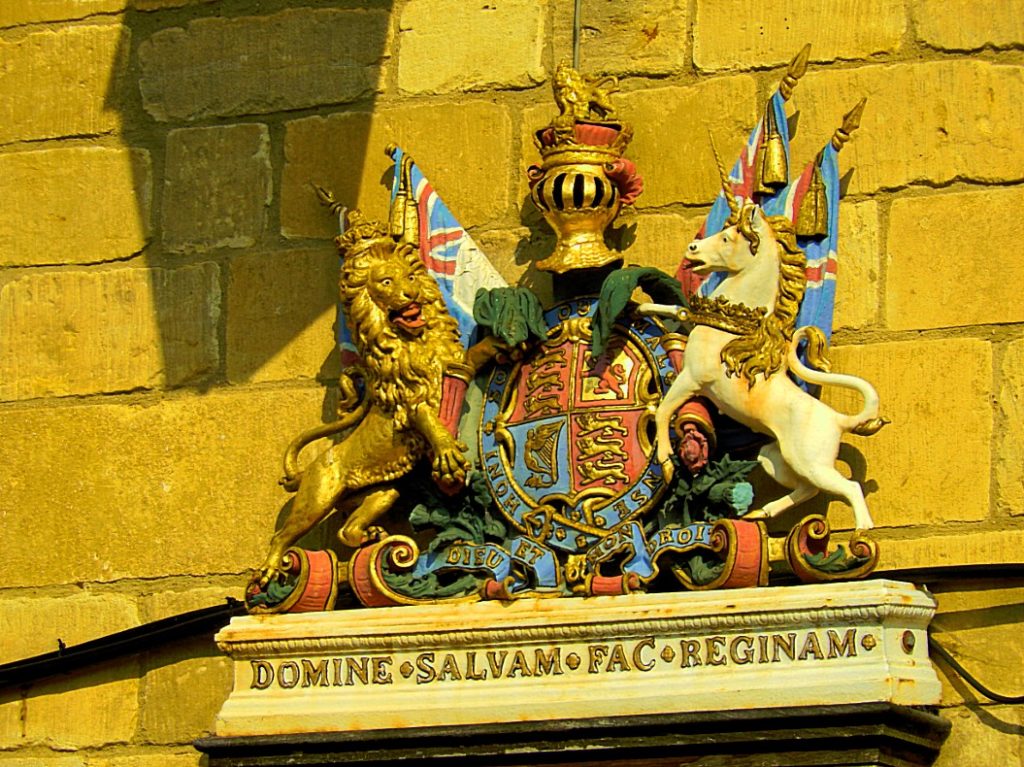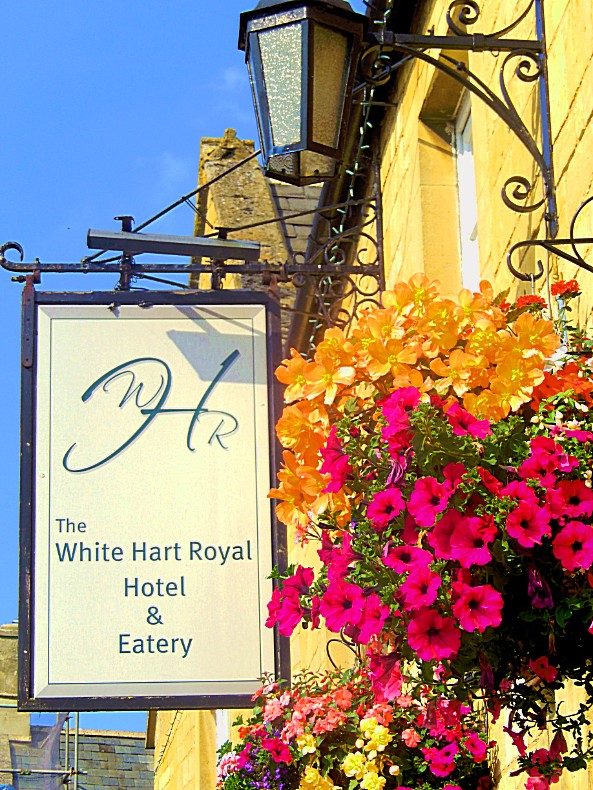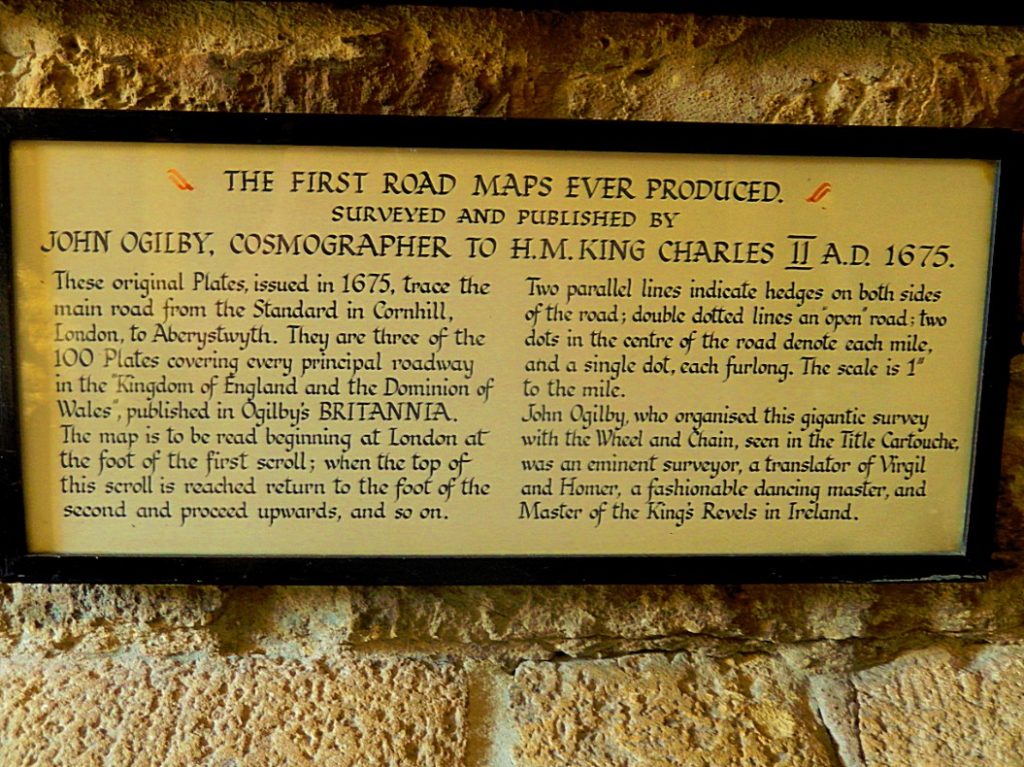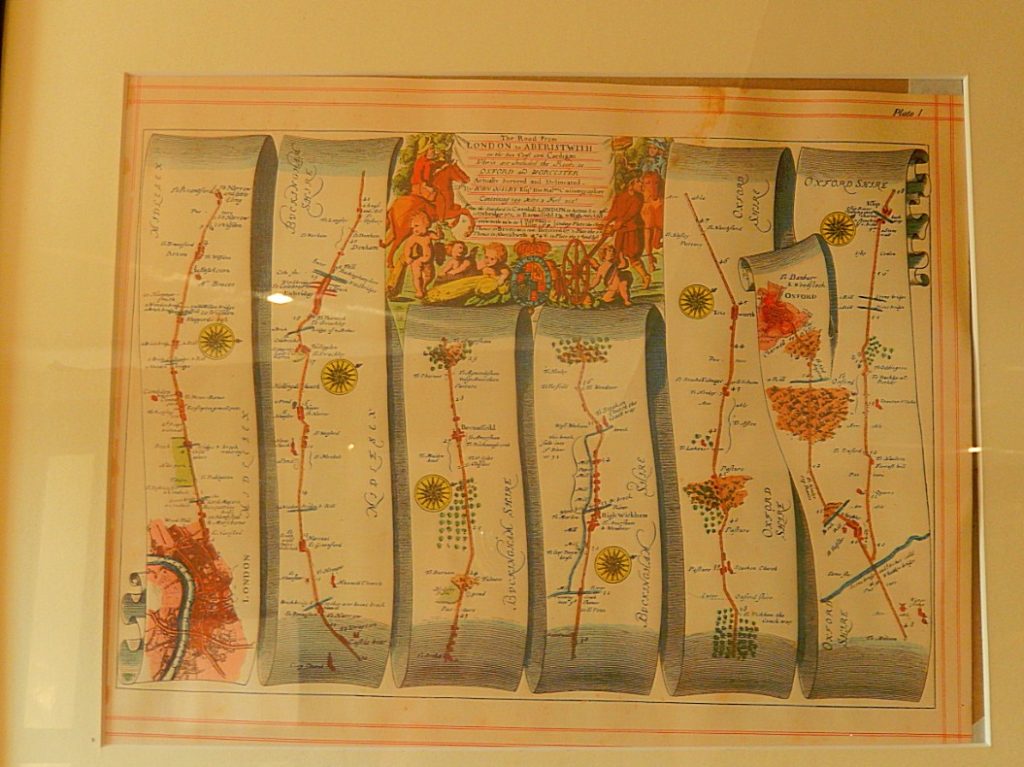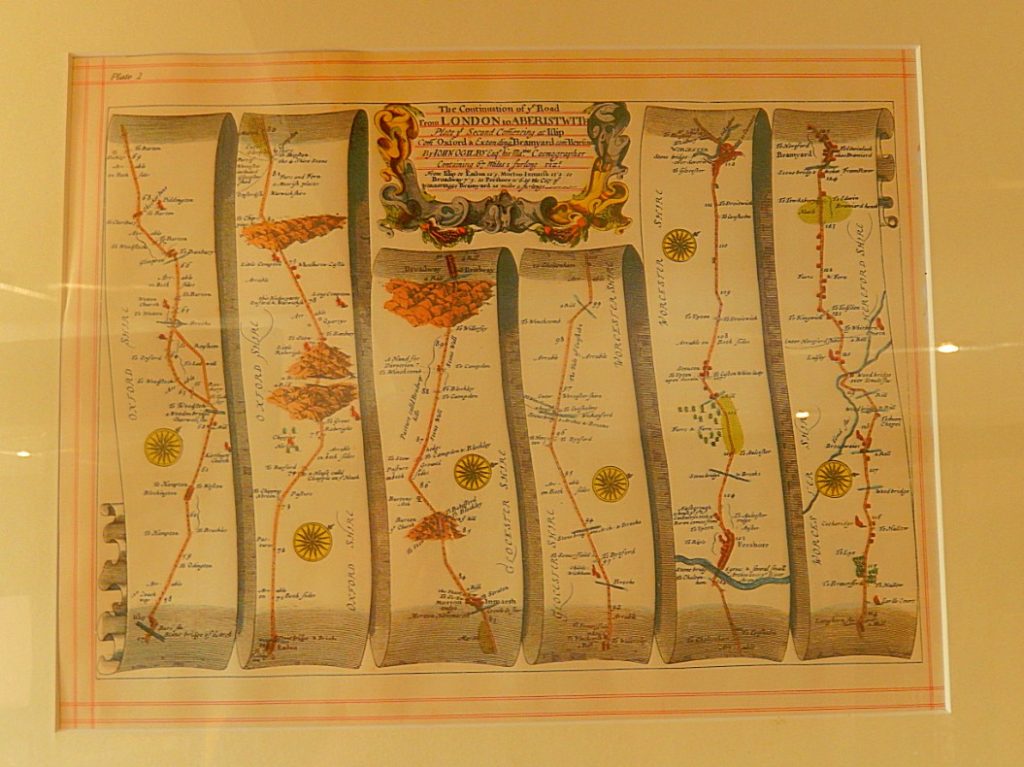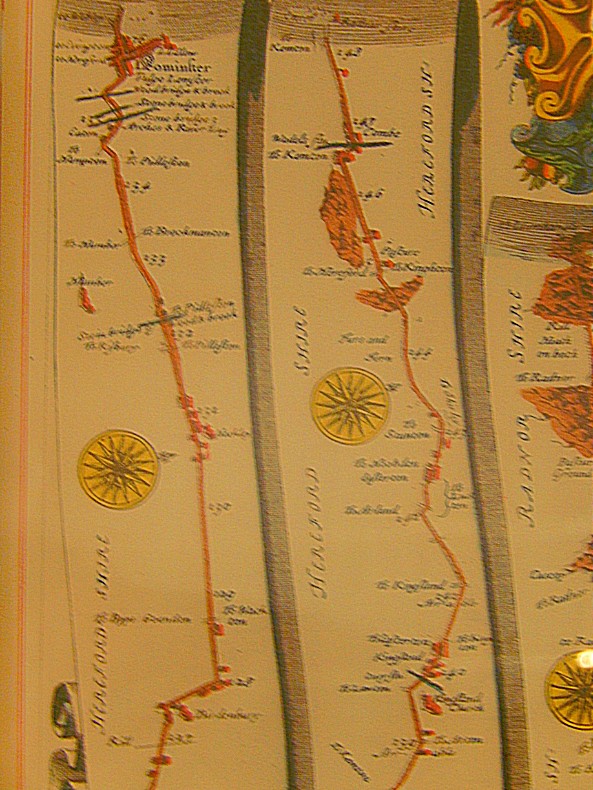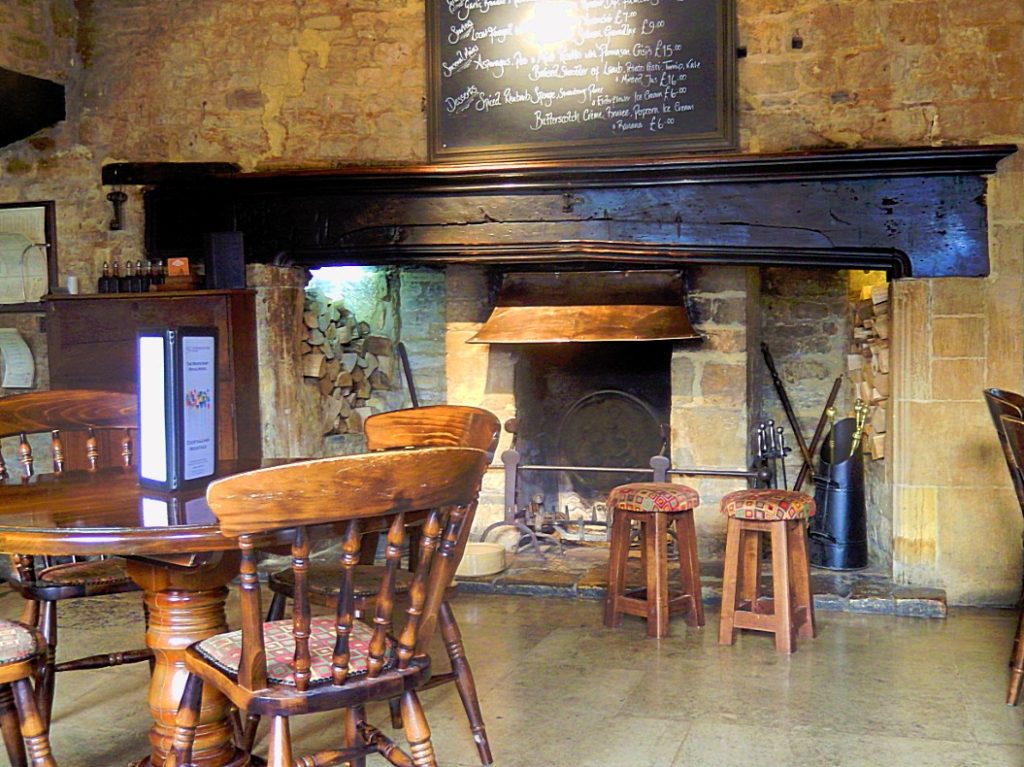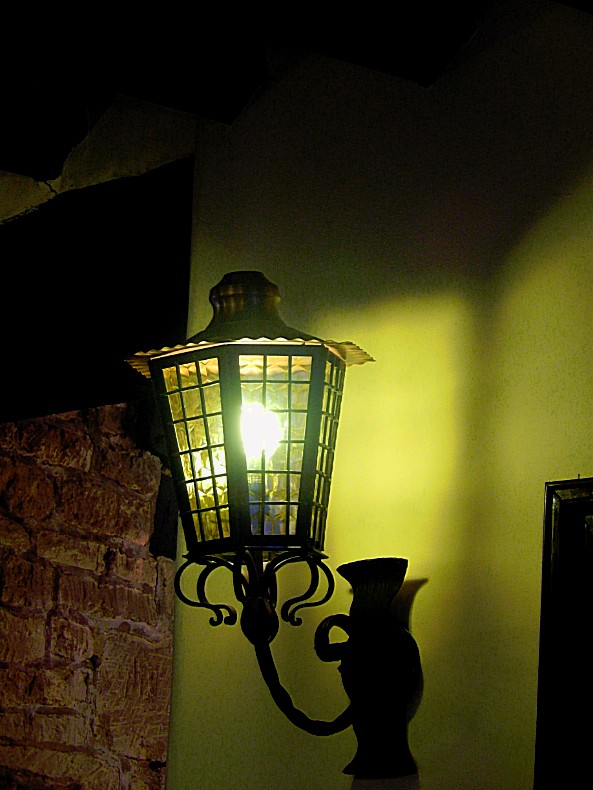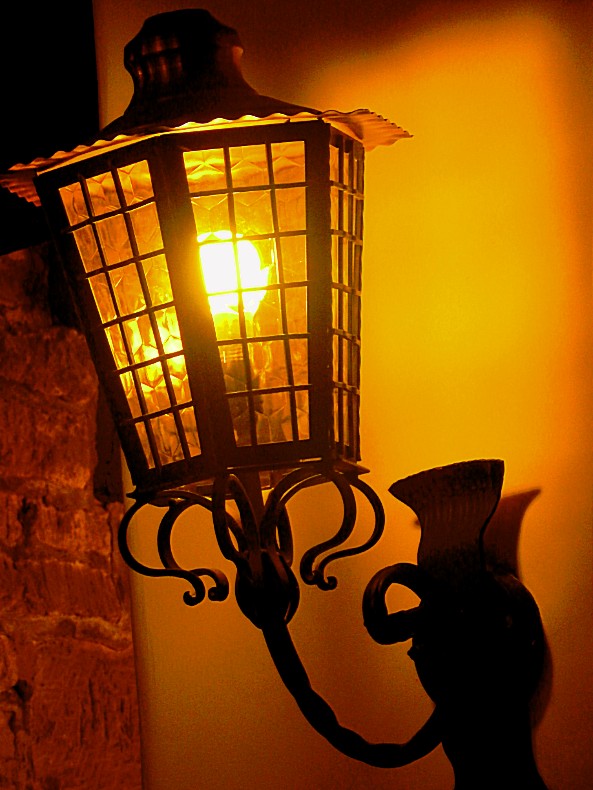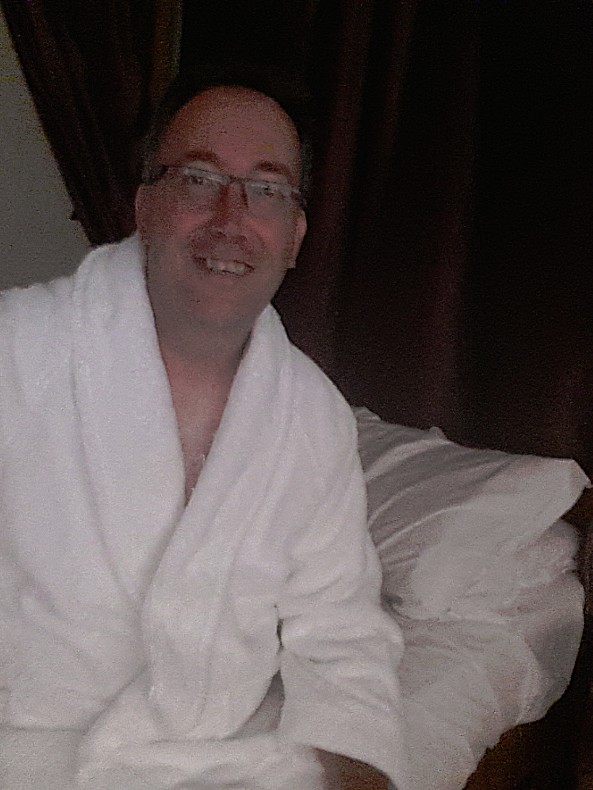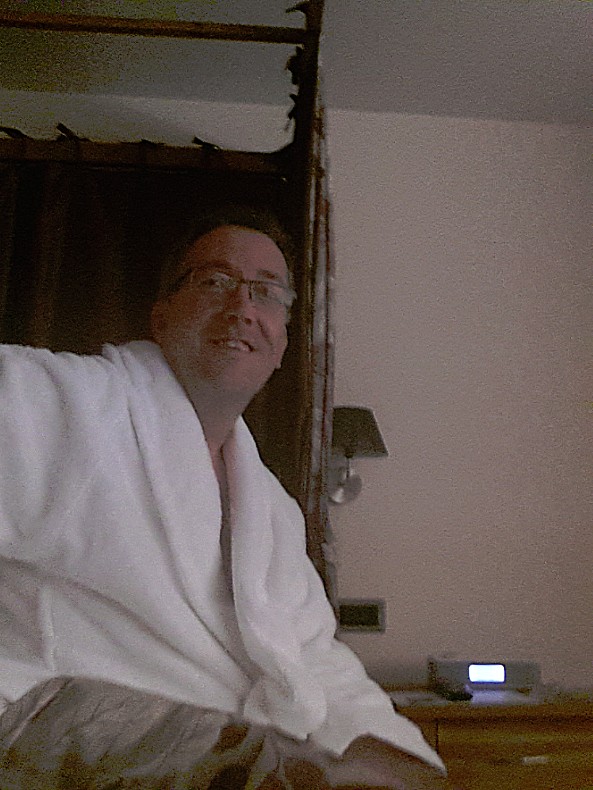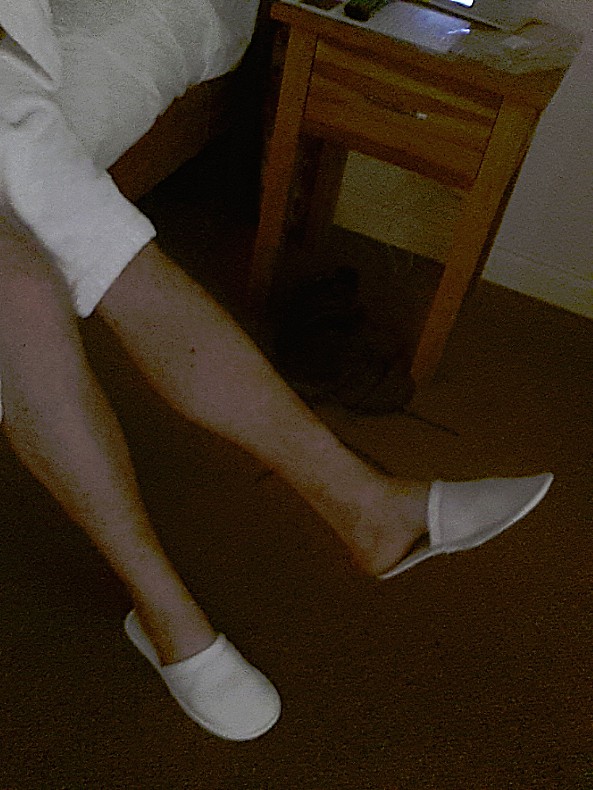England: The White Hart Royal hotel & eatery in Moreton-in-March – The Cotswolds: Area of Outstanding Natural Beauty (Cotswolds 6) – 2016
After my taxi ride through the Cotswolds I arrived at my last stop in the Cotswolds on its verge in Moreton-in-Marsh, where I stayed at the beautiful, welcoming The White Hart Royal Hotel.
Above the window view from my Deluxe double bedroom.
The deluxe double bedrooms are large featured rooms that offer additional living space and a separate sitting area.
All rooms offer a comfortable king size bed with duck down duvets, en-suite bathroom facilities, Sky television, tea and coffee making facilities, complimentary bottled mineral water, free WiFi access and much more, as well as some special premium arrival treats!
The Oxford Suite came with a gorgeous oak four poster bed for a royal feel…
This historic hotel has a characterful and intriguing past
The White Hart Royal Hotel, in the centre of Moreton-in-Marsh, is at a historic junction of the Fosse Way, the Roman cross-country road connecting Lincoln to Exeter, with the principal route from London and Oxford to Worcester. Well-preserved timber-framing, thought to date from the 1400s, can still be admired in parts of the building, which is known to have been an important inn since at least the 1600s.
This iconic building is a former 16th century coaching inn and is as comfortable and elegant today as it was in its coaching heyday. It was so well loved historically that it’s where King Charles I chose to visit back in 1645, the day before the famous battle of Naseby.
Originally called The White Hart, its most famous guest was Charles I, who stayed overnight on two occasions while on military manoeuvres during the English Civil War in 1644 and 1645. Memories of the first visit survived in local oral history, and have been the inn’s chief claim to fame ever since. Knowledge of the second visit has been rediscovered only recently in a rare seventeenth-century account of the war.
From the opening of the first turnpike road passing through Moreton-in-Marsh in 1731, The White Hart became an important coaching inn. It was owned by the Winslow family, who soon afterwards invested in expanding the stabling for up to 70 horses, and who in 1782 commissioned a major rebuild, which created the Georgian façade that graces the High Street today.
The arrival of the railway in 1853 heralded a new era for the town and for the White Hart, which came under the control of the entrepreneurial Robert King. He built the assembly room at the back of the hotel, enthusiastically promoted the connection with Charles I, acquired the royal coat of arms now displayed above the main entrance, and renamed the hotel The White Hart Royal.
Above the Coat of Arms, on display…
Many of the oldest architectural features of the hotel were revealed and preserved during a restoration in the 1920s by Trust Houses Ltd, the country’s first national chain of hotels, and owners of the hotel until the 1990s. The White Hart Royal was acquired by The Coaching Inn Group in 2008, and has since undergone a major refurbishment to meet the needs of today’s market while respecting and retaining the many features of its fascinating heritage.
1st Road Maps ever produced
As “Wandelgek” being crazy about walking and hiking, maps and map making , I was pleasantly surprised to see John Ogilby’s very first British road maps ever hanging on one of the walls.
John Ogilby (November 1600 – 4 September 1676) was a Scottish translator, impresario and cartographer. Best known for publishing the first British road atlas, he was also a successful translator, noted for publishing his work in handsome illustrated editions.
Outside was very pleasant courtyard and a terrace where I ordered a large pint of local beer from the Hook Norton brewery…
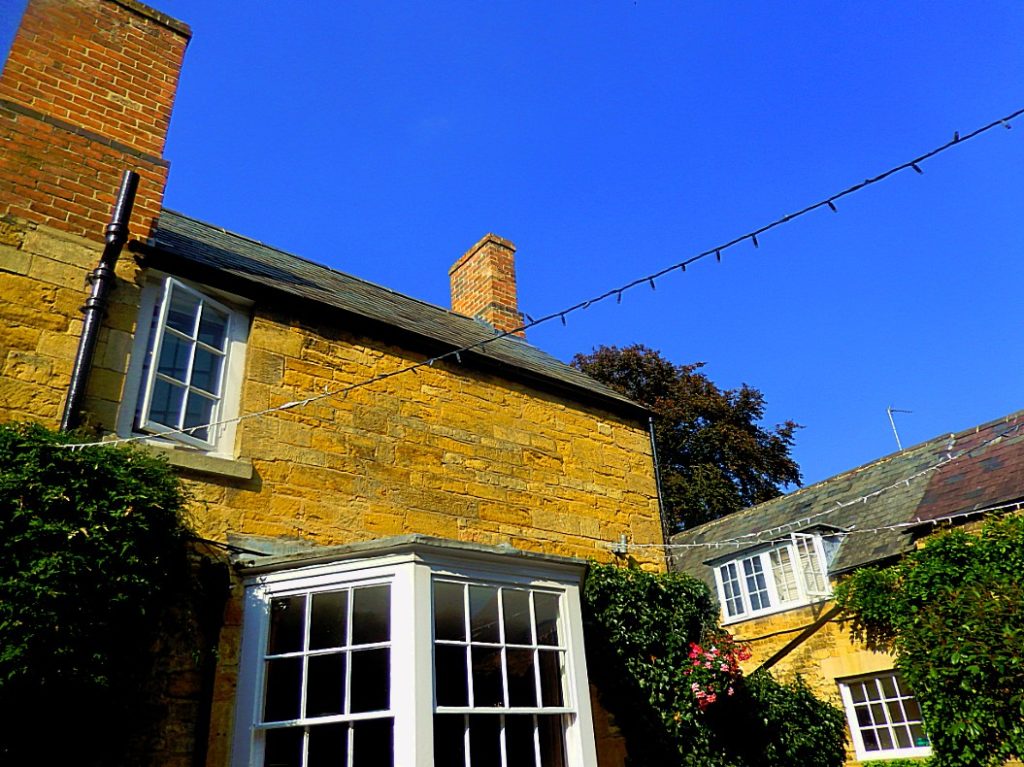
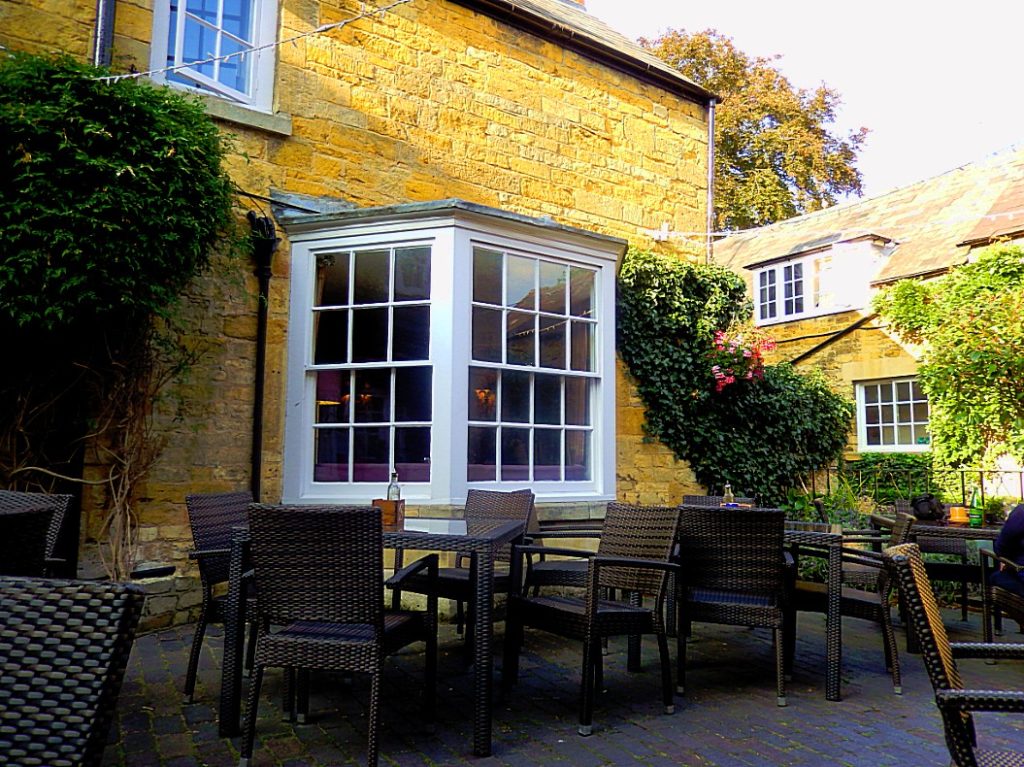
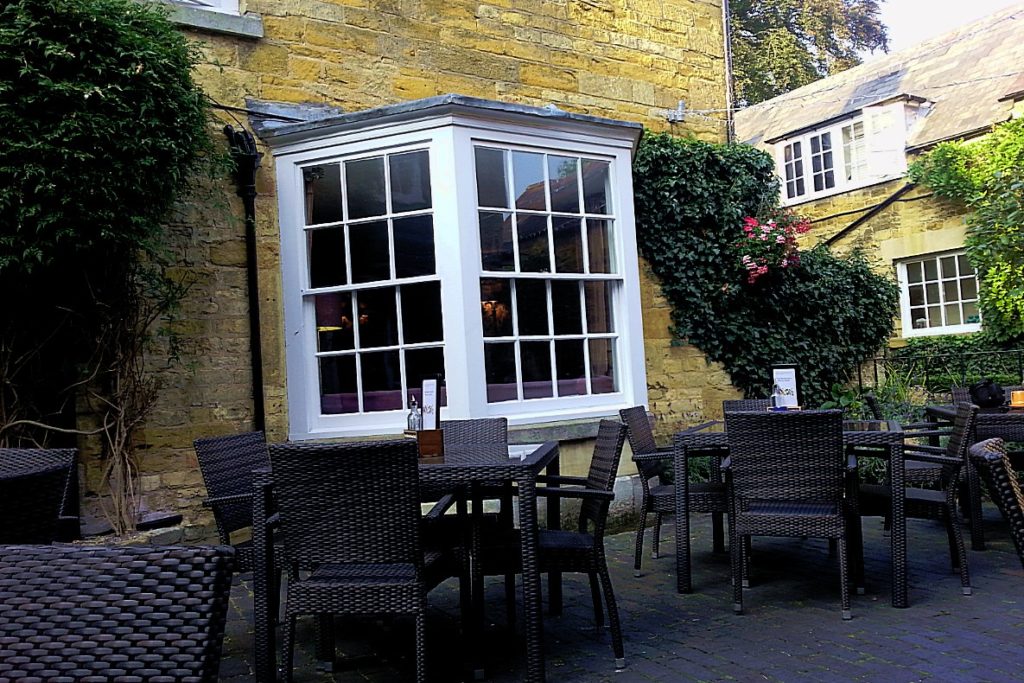
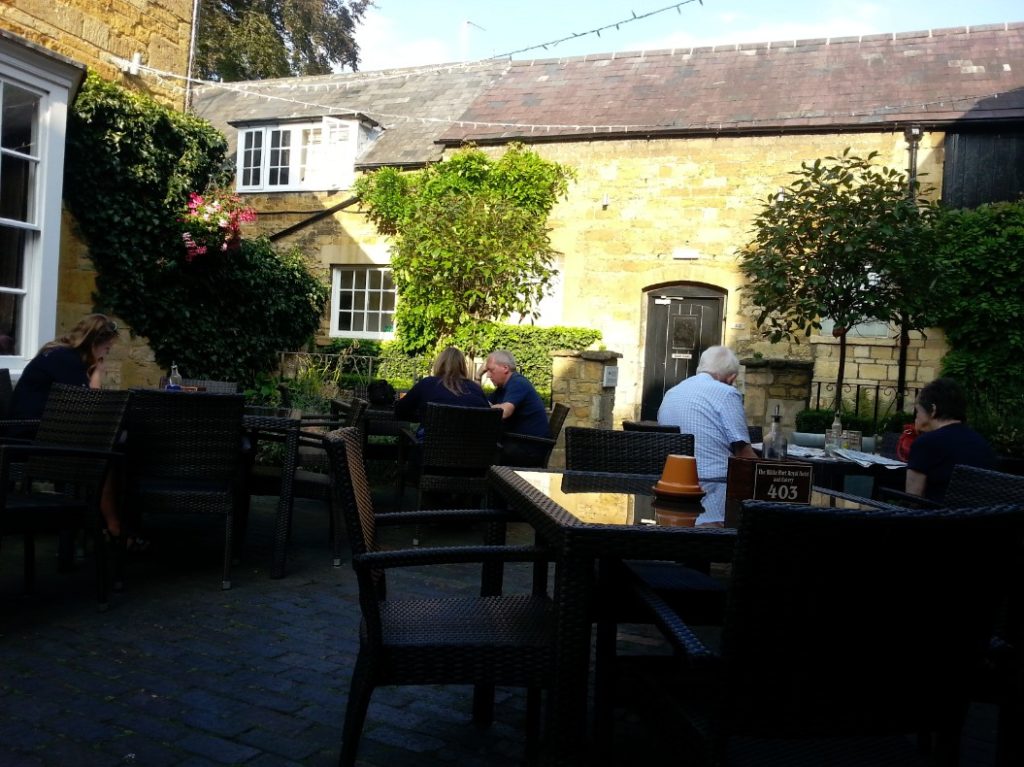
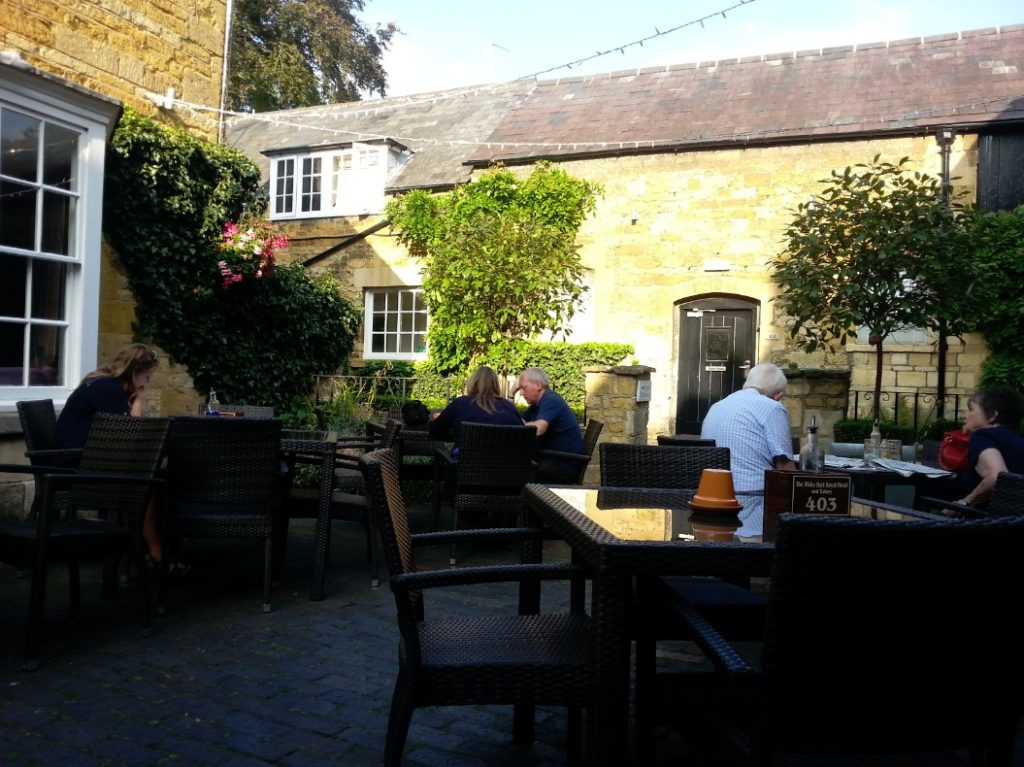
The Hook Norton brewery in Banbury in the Cotswolds has a vast array of specialty beers available.
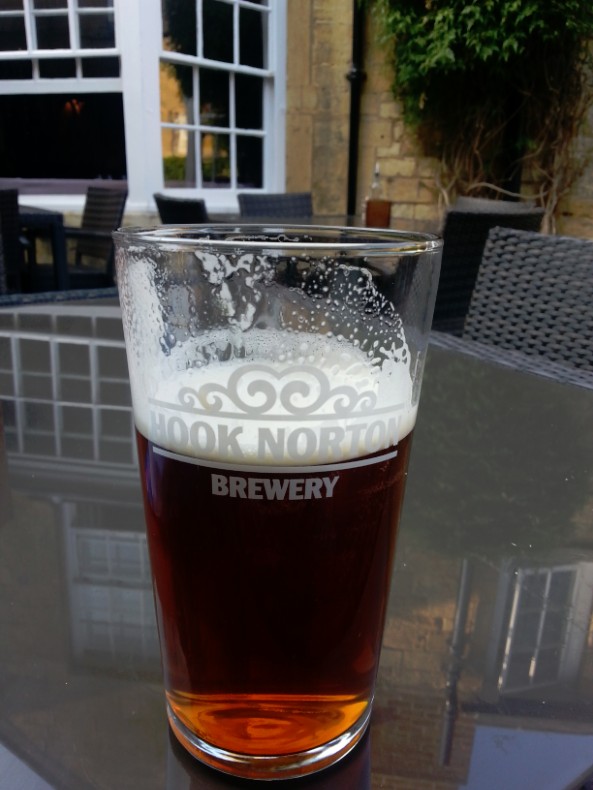
After sunset the interior is good place to spend the evening with good food and drinks…
There were also some beautiful old black and white pictures of the hotel hanging on the walls. The hotel really reminded me of the Prancing Pony from Lord of the Rings. It had been a typical stagecoach inn with a courtyard and stables (actually, my room could have been a former stable too). Everything here felt quite Hobbitish. My surroundings, but certainly the food and delicious local beers and the comfort of my deluxe bedroom. As of tomorrow I would be staying in hostels again…
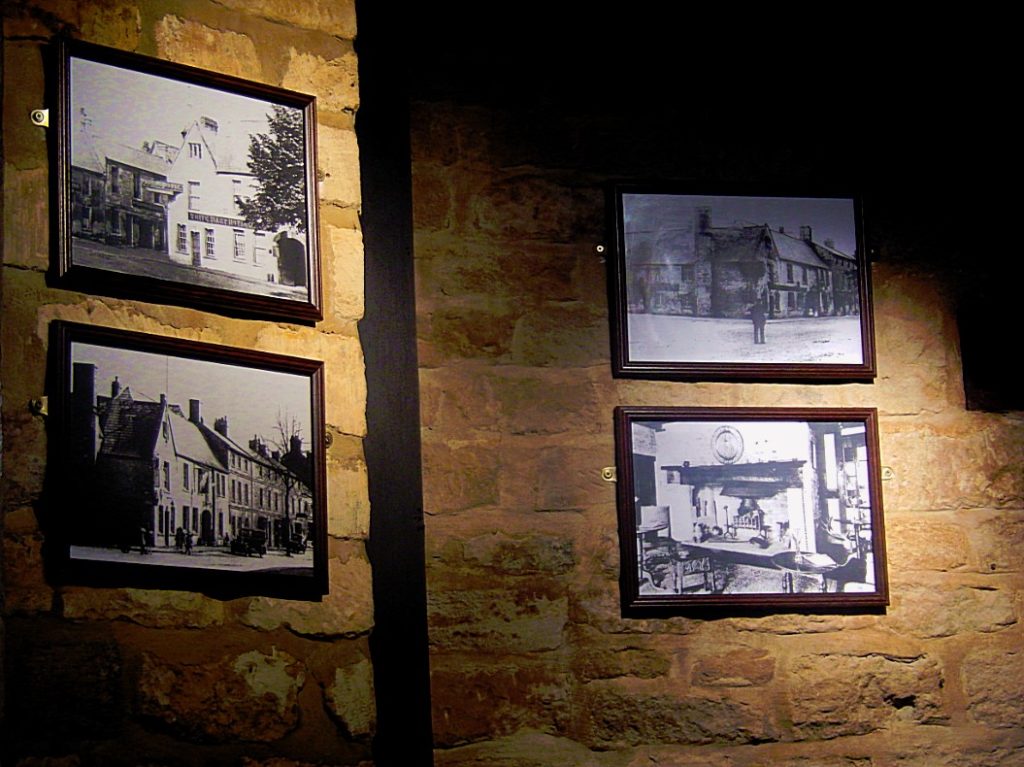
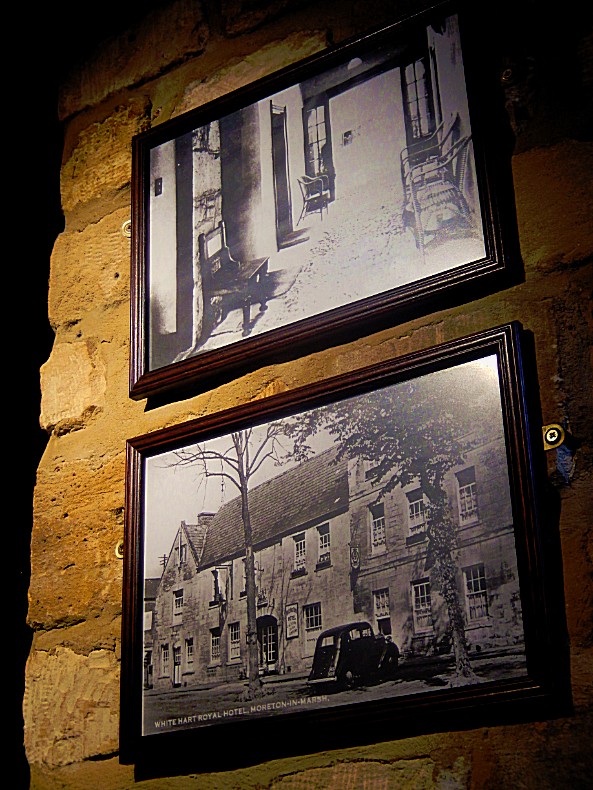
After sunset it was time for a good meal and some delicious drinks on my last evening in the beautiful Cotswolds…
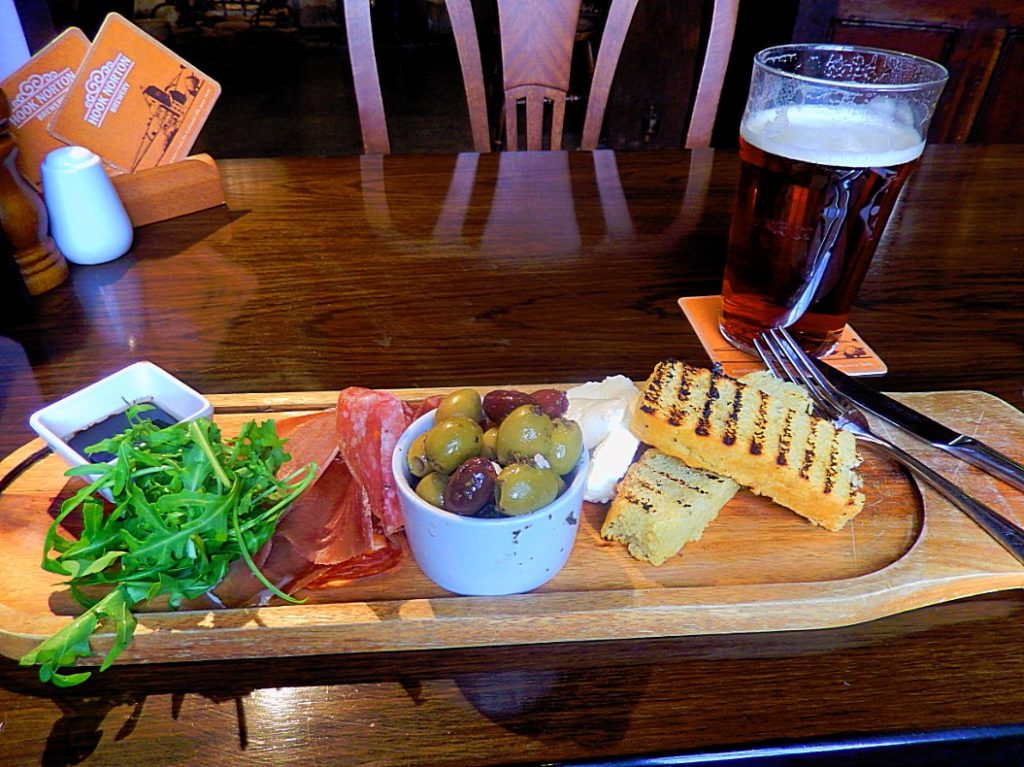
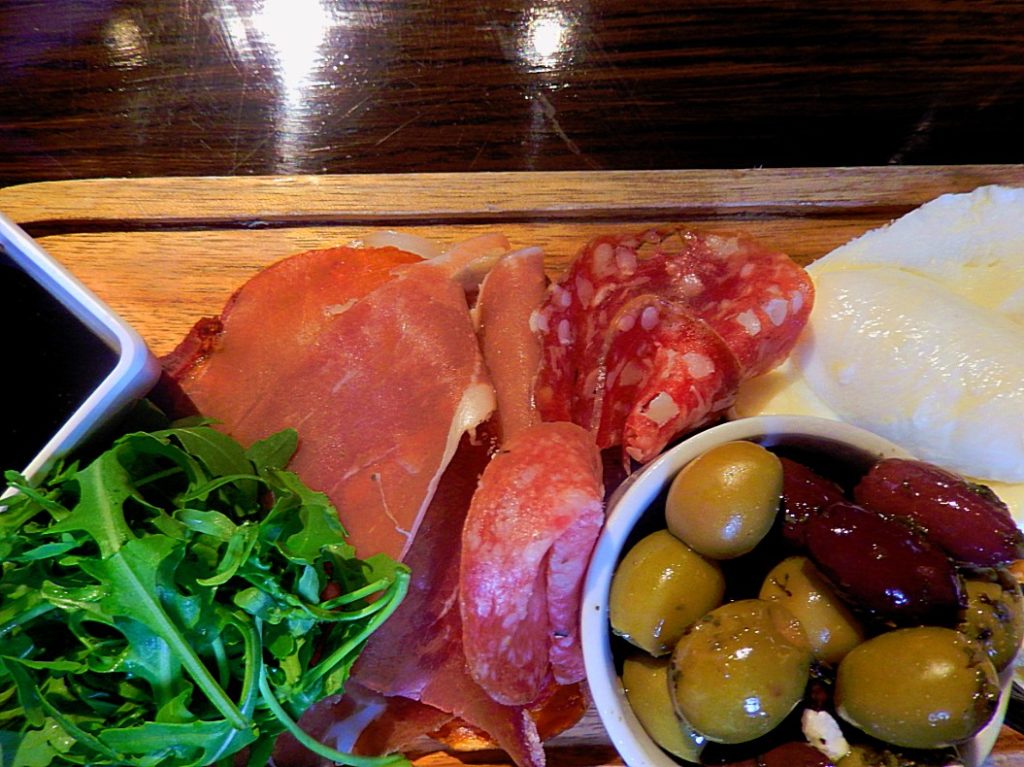
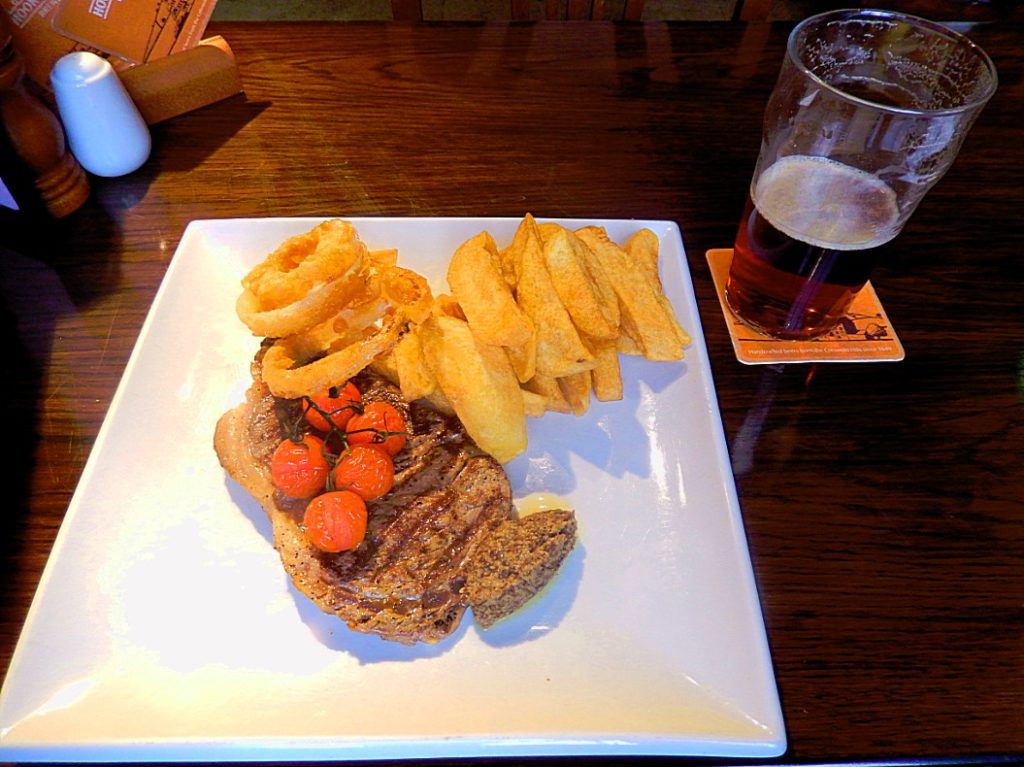
It became quite late now and so I retreated to my room to take a shower, see some tele and then go to sleep.

